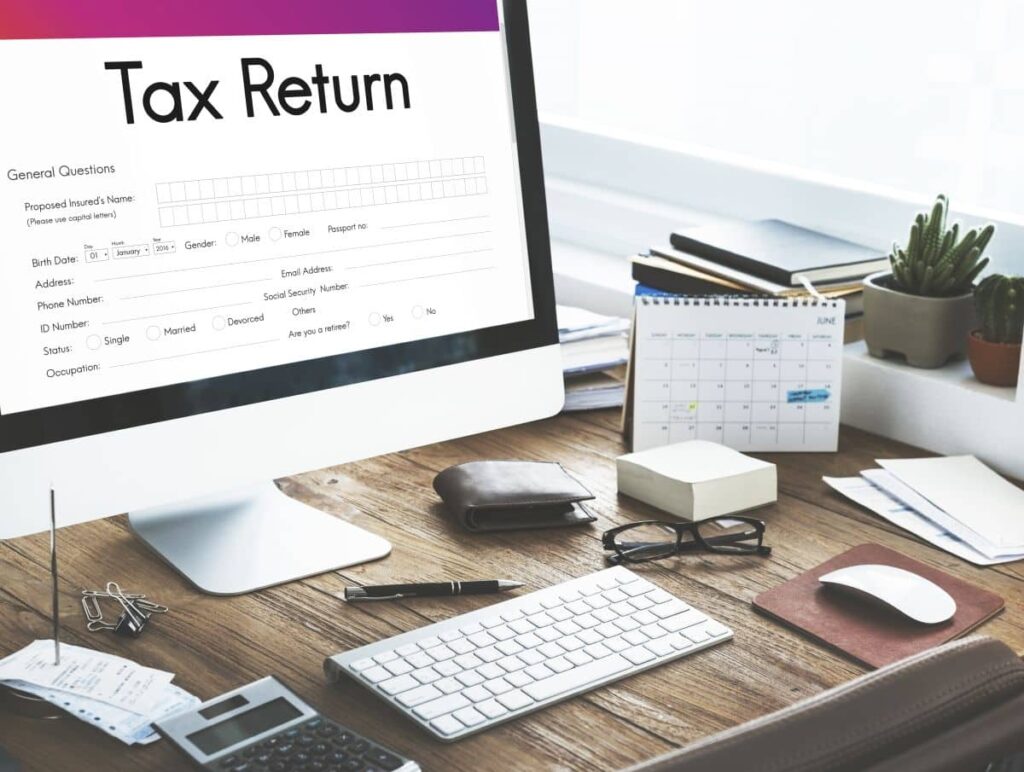Simple Tax Guide for Americans in Australia
We are commenting on U.S legislation.
The Australian Tax Office is notorious for being complex and confusing, especially if you’re not familiar with the country’s tax system. As an American living in Australia, it can be difficult to navigate your way through the complicated process of filing taxes.
This blog post will break down all of the necessary steps so that you don’t have to worry about anything on April 30!
Beautiful beaches, pleasant weather, and an English-speaking, laid-back culture make Australia appealing to American ex-pats. It is a relatively accessible country for people with the required education and abilities, with a residence system based on points and roughly 20% of the population born outside the country.
However, don’t forget about the country from where you came when it comes time to file annual tax returns; they haven’t forgotten about you. This guide will help you understand your tax duties as an American ex-pat in Australia.
Keep in mind, this information about taxes for Americans is intended to be general in nature and is not personal finance and accounting advice.
U.S. Expat Taxes – Australia
Regardless of where they live, U.S. citizens and permanent residents are obligated to file expatriate tax returns with the government every year.
Many people are required to file a return revealing assets kept in overseas bank accounts using FinCEN Form 114 (FBAR) in addition to their regular tax return for income.
The United States is among a few governments that have international tax income earned by their citizens and permanent residents residing overseas.
However, there are various measures that help to prevent against double taxation. The following provisions are included:
- The Exclusion for Foreign Earned Income. This exclusion allows you to deduct USD 104,100 in earned income from foreign sources (this amount is for 2018 taxes).
- A tax credit reduces the amount of tax on leftover income depending on taxes paid to foreign countries.
- A foreign housing exclusion allows them to deduct additional amounts paid to cover domestic expenditures when living abroad from their income.
Following proper tax planning, preparing a quality tax return should allow one to use these and other strategies to minimize or possibly eliminate tax liability. Note that in most cases, filing a tax return is required, even if taxes are not owed.
Tax Rates for Australia
The Australian Tax Office (ATO) is Australia’s major tax collection agency and is comparable to the Internal Revenue Service. You must first obtain a Tax File Number (TFN), which is identical to the Social Security Number in the United States, in order to file taxes. It is unique to you, much like your Social Security number, and must be protected to prevent identity theft.
This is your permanent phone number. Taxes on both wage and investment income will be withheld from people who do not have a Tax File Number. Temporary residents can also get TFNs if they need them for tax purposes.
Married couples cannot file joint returns, but they must declare the other spouse on their tax forms.
Australia, like the United States, has a progressive tax structure. As income rises, progressive tax regimes increase the rate of taxation. Note that non-residents pay different tax rates than residents in Australia.
Furthermore, the residency term for tax purposes may differ from the general resident definition. However, if you dwell in Australia permanently, you are considered an Australian resident.
You are deemed a resident if you have worked and lived in Australia for more than six months and continue to live there unless you show otherwise.
In addition, there is a 2% Medicare surcharge. A fee is also applied to those who do not have proper health insurance.
From July 1, 2017, the temporary budget repair levy was no longer in effect.
Do you need help with your individual tax return? Tax Warehouse is a trusted individual tax return preparation company in Australia. We perform cheap and quick tax returns for individuals. You can give us a call on 0407 418 209 or email us on [email protected].
The following are the tax rates for persons who are not deemed residents for tax purposes. Foreign residents are persons who have earned income in Australia but are not Australian residents.
| Non-Residents’ Tax | Income |
| AUD 0.325 per dollar | AUD 0 – AUD 90,000 |
| AUD 29,250 + AUD 0.37 per dollar above AUD 87,000 | AUD 90,001 – AUD 180,000 |
| AUD 62,550 + AUD 0.45 per dollar above AUD 180,000 | Over AUD 180,001 |
Non-residents are exempt from paying Medicare taxes but are unable to get benefits of it too.
From July 1, 2017, the temporary budget repair levy was no longer in effect.
Bank account interest is not considered income, but the bank must have a foreign address on file to avoid withholding.
Who is considered an Australian resident?
As previously stated, tax residency differs from residency for citizenship or immigration purposes. As a result, satisfying any of these criteria qualifies one as an Australian tax resident.
- Having spent my entire life in Australia.
- I have permanently relocated to Australia.
- Having spent more than half of the tax year in Australia (except if your normal home is not in Australia, and there is no intention to live within Australia permanently)
- Having spent at least six months (consecutively) in Australia, residing in a single location, and working in a single job
Income from Australian sources necessitates filing taxes with the Australian Tax Office, regardless of residency.
Which Tax Status is Better?
Non-residency and residency both have advantages and disadvantages.
| Non-Resident | Resident |
| Higher taxes | Lower taxes |
| Only Australian income is taxed | Tax is on all income worldwide |
| No Medicare tax, but also no benefits | Pays Medicare tax and receives benefits |
| Bank interest is subject to a 10% tax. | Bank interest is subject to a 10% tax. |
| Gains in’real property’ are taxed, but gains in bonds and stocks are not. | Capital gains are taxed |
When Should You Pay Your Australian Taxes?
By October 31, you must file (or “lodge” as it is known in Australia) your Australian return. If you utilize registered tax agents, you must register as a customer by the same deadline. You will be given an extension until June 5 of the following year once you have registered. The financial year in Australia runs from July 1 to June 30.
Australian Social Security

A three-pillar pension scheme exists in Australia. The first pillar (Public Pensions) consists of a tax-funded Age Pension (state pension), which provides men and women with basic benefits (equivalent to social security) (age 65 and above). The government also established the Future Fund, which is funded by budget surpluses and the privatization of Telstra (telecommunications firm). The Future Fund was established to cover unfunded superannuation commitments in the public sector.
The second pillar (Occupational Pensions) is a superannuation fund supported by mandatory contributions from all employees between the ages of 17 and 70. Employees may make voluntary contributions to a superannuation fund, despite the fact that this defined contribution scheme demands a minimum commitment.
Retirement savings accounts (RSAs), which operate under the same tax regulations as superannuation funds, make up the third pillar (Personal Pensions). Low-cost pension plans offered by deposit-taking institutions or life insurance firms are known as RSAs.
Employees in Australia are not subject to social security taxes in the United States. Because of the Australia-US tax pact (known as a Totalization Agreement), self-employed ex-pats in Australia can choose whether to contribute to the US social security system or the Australian system. For the vast majority of Australians, government-sponsored retirement plans are restricted to superannuation, which is discussed below.
Australian Superannuation
Superannuation is similar to a large 401(k) plan, but it is obligatory. Employee contributions are voluntary, however employers are mandated to contribute 9.5 percent of basic earnings for employees earning more than AUD 450 per month.
Employee contributions are tax deductible in Australia (from July 1, 2017, with a limit of $25,000) but not in the United States. Superannuation fund access is limited to those over the age of 65 in 401(k)s unless they meet one of many exceptions.
Is Foreign Income Taxed in Australia?
Non-residents are exempt from reporting overseas profits for tax reasons in Australia. Temporary residents, for example, may be required to record earned income from foreign sources but not investment or passive income earnings. Residents of Australia must disclose worldwide income, however there are some ways to avoid double taxes.
US-Australia Tax Treaty
A tax treaty exists between the United States and Australia. The treaty establishes words used in the tax relationship between the United States and Australia, as well as procedures for determining which country taxpayers are residents of. This is particularly crucial for persons who are unsure of their residency status. The majority of the tax treaty is concerned with property and commerce, and it includes provisions allowing each government to levy taxes on specific types of income based on the country from where the income was generated.
The rules for double taxation are laid out in Article 22 of the tax treaty. The treaty prevents double taxation on pensions, social security income, and annuity income received by a resident while in their home country. For example, an Australian resident who is a US citizen and receives income from an Australian pension may be eligible for tax relief. Taxes on Australian pensions, for example, may be imposed.
Self-Employed Americans in Australia
The tax rate is steady at 28.5 percent for businesses with revenue under AUD 2 million. These business taxes must be paid in advance each quarter based on the amount expected to be owed. It should be noted that a corporation does not have to be incorporated in Australia to be regarded as an Australian corporation. It merely has to do business in Australia and be controlled or owned by an Australian.
Varied business formats, just like in the United States, have different tax and legal obligations. Partnerships, sole traders, companies, and trusts are all options for Australian enterprises.
Australian GST
Except for certain prohibited items, the GST (Goods and Services Tax) is a type of value-added tax that applies to practically all transactions involving goods and services. The GST rate is set at 10%. Businesses with gross receipts of more than $75,000 must register and pay goods and services taxes.
Tourists who submit the merchandise and receipts upon leaving Australia can claim a refund for any GST they paid in the previous month.
The U.S./Australia tax treaty summary
The United States and Australia have a tax treaty that defines precise tax laws that apply between the two countries. The key provisions address how to avoid double taxation and govern income, capital gains, and corporation taxes. The Saving Clause in US tax treaties, on the other hand, basically allows the US to tax its residents as if the pact never existed.
Finally, the Australian government exchanges tax information about Americans living in Australia with the Internal Revenue Service. This includes tax returns and bank account information, which means you could face fines and penalties if you fail to complete your FBAR or FATCA reports (or if you file them erroneously). That’s why you should hire a tax preparer in the United States who is familiar with ex-pat taxes.
Five Key Expat Tax Principles
Principle #1 – Your Obligation Endures
Even if you move abroad, you still have to file taxes in the United States.
Our first principle is especially important since many Americans wrongly believe that once they go abroad, their tax obligations in the United States end.
In truth, even if they live outside the United States, U.S. citizens are considered U.S. residents for tax reasons and are consequently subject to U.S. tax reporting on their worldwide income.
Expats must disclose all of their income to the IRS on an annual basis, just as they did before moving abroad, whether it comes from a U.S. source or a foreign source, and whether the foreign source is Australia (e.g., employment there) or any other country.
Principle #2 – New Filing Requirements
You’re almost certainly subject to new information reporting requirements.
Ex-pats from the United States who have accounts or other assets in another country must fill out many informational forms. Some of these documents are attached to a personal income tax return (Form 1040) and sent to the IRS, while others are sent to other government agencies.
Failure to file any of these papers can result in serious civil penalties, including a $10,000 fine each year. Additionally, if the reporting delinquency is proven to be willful, criminal sanctions, including fines and jail, may apply.
Some of the more common forms include:
- Foreign Bank and Financial Account Report (FBAR)
The FBAR is not a tax form that must be filed with the Internal Revenue Service. Instead, it’s a document that’s sent to the US Treasury Department seeking information. The FBAR must be filed annually with the Treasury Department by every U.S. account holder (person or corporation) with a financial interest in or signatory authority over one or more foreign financial accounts with a total value of more than $10,000 in a calendar year.
- Form 8938, Statement of Specified Foreign Financial Assets (FATCA Reporting)
Consider the case when you live outside of the United States and hold a bank or investment account with a foreign financial institution. If you meet certain monetary limits, you are normally required to include FATCA Form 8938 with your US federal income tax return.
Principle #3 – New US Tax Considerations

Your Activities in Australia Have Important U.S. Tax Implications
Special considerations must be made for each item of income earned by an expat and each foreign asset held or purchased. The following are some instances of common Australian activities and their potential tax implications in the United States.
-
The Australian Trust Entity
While the registered company is still the most prevalent and well-understood form for conducting business in Australia, the trust entity is becoming more popular because it combines business benefits (such as asset protection and liability limitation) with tax benefits (e.g., capital gains on the sale of assets may be eligible for 50 per cent discount).
Unit trusts (where beneficiaries have a fixed entitlement to income and capital based on the proportion of units they possess in the trust) and discretionary trusts are the two primary forms of trusts used in Australia (where the trustee has the discretion to distribute income and capital to one or more beneficiaries of the trust as the trustee sees fit).
Despite the benefits that the trust entity provides under Australian law, the US expat should be mindful that using this type of entity may not be effective tax planning in the United States. For example, if a trust operates a business in Australia, it can be classified as a business entity similar to a corporation in the United States.
Such a classification under US tax law could trigger anti-deferral regimes in the US, such as the “controlled foreign corporation” regime, the new “global intangible low-taxed income” regime, or the “passive foreign investment company” regime, all of which are aimed at preventing taxpayers from deferring US tax by shifting income to foreign entities.
To avoid having your income subjected to very punitive U.S. federal tax rates, careful planning is typically required.
-
Australian Pension Plans
Foreign pension plans, particularly Australian pension plans, do not normally qualify for the tax-deferral status provided by Section 401 of the United States Internal Revenue Code (e.g., a 401(k) plan). As a result, even if employer contributions and plan earnings are not currently subject to Australian tax, they may be subject to US tax in the future and must be disclosed on the individual’s US income tax return. Employer contributions are taxed now, but plan earnings may be tax-deferred until retirement provided certain conditions are met in the case of a foreign pension plan that qualifies as a “employees’ trust” under Section 402(b) of the Internal Revenue Code.
In this regard, over 90% of employed Australians have funds in a superannuation pension account; while employer contributions to these accounts may be tax-deferred in Australia, they are currently taxable in the United States. Whether the superannuation fund is a super public or a self-funded super fund may have additional tax and reporting implications in the United States. A self-funded super fund may be treated as a “foreign grantor trust” for tax purposes in some cases, triggering additional reporting requirements such as the filing of a foreign trust form (IRS Form 3520).
For these and other reasons, it is critical that U.S. expats who participate in a superannuation or other pension fund are aware of the tax and reporting consequences in the United States.
-
Considerations for US Tax Reporting
It’s crucial to remember that, in addition to the substantive U.S. tax implications of the above activities, they could also result in additional tax reporting duties. Some of the most popular types of foreign investment or financial operations include:
- Form 3520 is used to report transactions with foreign trusts as well as the receipt of certain foreign donations.
- Certain stockholders of overseas firms must file Form 5471.
- Certain shareholders of passive foreign investment businesses must file Form 8621. (such as foreign mutual funds)
- For each controlled foreign partnership in which the taxpayer is a 10% or more partner, Form 8865 must be filed.
Principle #4 – United States Tax Benefits
U.S. Tax Benefits Are Available to You
The good news for expats in Australia is that both domestic tax legislation in the United States and bilateral agreements between the United States and Australia contain mechanisms to avoid “double taxation,” or taxation on the same income in both countries.
In many situations, these rules can minimize or even eliminate the ex-pat taxpayer’s federal income tax liability in the United States. Keep in mind, however, that even if no US tax is owing, a US tax return must be submitted, and failure to do so can result in significant penalties.
The foreign earned income exclusion (“FEIE”), the foreign housing exclusion (“FHE”), and the foreign tax credit (“FTC”) are all provisions of domestic law created expressly for taxpayers who live overseas.
-
Exclusion of Foreign Earned Income
Individuals who can prove that their tax home is outside of the United States (by passing either the “bona fide residence” or “physical presence” tests) can deduct a percentage of their income generated abroad from their taxable income. The FEIE sum is adjusted for inflation every year. The maximum foreign earned income exclusion for tax year 2020 is $107,600 ($215,200 for a married ex-pat pair).
To claim this deduction, an individual must file a federal income tax return in the United States (Form 1040). An individual must file Form 2555 with their federal income tax return in order to claim the FEIE.
-
Foreign Housing Exclusion/Deduction
In addition to the FEIE, a U.S. expat can exclude or deduct the cost of dwelling in a foreign nation from their gross income if they meet the bona fide residence or physical presence standards. When an individual has waged, the exclusion applies. When an individual is self-employed, the deduction is available. An individual must file Form 2555 to claim the foreign house exclusion/deduction.
However, certain limitations apply to the housing cost amount, which are adjusted based on geographic area. The maximum foreign housing exclusion for 2020 is $15,064, assuming no changes to the limits. Adjustments vary by city and are determined by the local cost of living. The following Australian cities are affected by these changes: Darwin, Northern Territory, Melbourne, Perth, and Sydney.
-
Foreign Tax Credits
A U.S. ex-pat can claim a foreign tax credit (“FTC”) for foreign income taxes paid as an alternative to (and, for higher-income taxpayers, in addition to) the FEIE and foreign housing exclusion/deduction. Foreign tax credits, on the other hand, are limited to taxable income from foreign sources and cannot be used to offset income from the United States.
Because the Australian tax rate on an ex-income pat’s is typically greater than the U.S. tax rate, there is often no residual income tax to pay in the United States after claiming a foreign tax credit for the Australian tax paid. A foreign tax credit, on the other hand, cannot be utilized to decrease the net investment income tax in the United States. As a result, even if the foreign tax credit can be fully applied to the earned income tax, residual U.S. tax may occur.

The regulations governing overseas tax credits are very complicated, necessitating a comprehensive examination by a tax professional.
Aside from certain circumstances, an individual must file Form 1116 with their federal income tax return in order to claim a foreign tax credit.
-
Bilateral Contracts
Many countries have signed treaties and other international agreements with the United States that provide specific benefits to American expats living abroad, such as protection from double taxation in both the United States and their home country. Agreements between the United States and Australia include:
- The Income Tax Treaty between the United States and Australia aims to reduce the impact of double taxation. Ex-pats from the United States may be entitled to various credits, deductions, exemptions, and reductions in the foreign country’s income tax rate under an income tax treaty with the United States.
- Totalization Agreement between the United States and Australia – The tax payments and benefits under the respective social security systems are affected by this agreement. Its goal is to abolish the double taxation of social security benefits. When a worker from one nation works in another, he or she is required to pay social security taxes to both countries on the same earnings. It also aids in the filling of benefit protection gaps for workers who have split their employment between the US and Australia.
Principle #5 – Reach of U.S. Government
FATCA and its Supporting International Agreements Have Expanded the United States’ Income Tax Reach Like Never Before.
The “FATCA” stands for “Foreign Account Tax Compliance Act\t.” FATCA is a relatively new law implemented as part of the HIRE Act in 2010. FATCA’s goal is to prevent offshore tax evasion by compelling U.S. citizens to report their international financial account holdings and foreign assets to the IRS on an annual basis. Beginning with the 2011 tax season, the IRS will require certain U.S. citizens to report the total worth of their “foreign financial assets” on Form 8938 as part of the FATCA implementation.
Foreign financial institutions (“FFIs”) (which include just about every foreign bank, investment house, and even some foreign insurance companies) have been required to declare the balances in accounts held by customers who are U.S. citizens since January 1, 2014.
To date, we’ve seen several large international banks ask all U.S. citizens with accounts with them to fill out a Form W-9 (declaring their citizenship) and sign a waiver of confidentiality agreement allowing the bank to share information about their account with the IRS.
Foreign banks have closed the accounts of US expats who refuse to comply with these instructions in some situations.
The US government’s intensified attempt to combat offshore tax evasion through FATCA has resulted in an increase in tax compliance efforts by US expats.
The IRS recently stated that the US and Australia have signed a so-called competent authority agreement (“CAA”) in support of a previously signed intergovernmental agreement (“IGA”) between the two countries. This agreement is intended to facilitate the implementation of the FATCA law, which requires financial institutions (primarily banks and investment houses) outside the United States to submit information to the IRS on financial accounts held by their American customers.
The CAA between Australia and the United Kingdom, which was signed simultaneously, is the first of its type. Specific provisions regulating the exchange of information protocols are included in these agreements. Financial institutions and host country tax authorities, for example, must use the International Data Exchange Service (IDES) to exchange FATCA data with the IRS under the terms of the agreement.
The IRS announcement followed an earlier press release from the Australian Taxation Office (ATO), which announced that it had transferred FATCA data to the IRS via its IGA for the first time. According to the ATO, the IRS received more than 30,000 financial accounts worth more than $5 billion in Australian dollars. In exchange, the United States committed to give Australia with information about Australian-owned accounts in the US.
These latest developments show that the United States’ efforts to combat offshore tax evasion are receiving support and cooperation from Australia and other countries. We anticipate an increase in tax compliance efforts by US expats as a result of this.
If you are a U.S. ex-pat living in Australia, you must comply with your ongoing tax obligations in the United States. Expat Tax Professionals’ specialists can help you understand your U.S. tax filing obligations and assist you with all of your U.S. tax compliance requirements.




















